Europe Travel Tips 2023: Essential Things to Know Before You Go
Planning a trip to Europe in 2023? Whether you’re a seasoned traveler or it’s your first time exploring the continent, there are always essential things to know before you go.

From navigating cultural differences and ensuring smooth transportation, to staying safe and getting the most out of your experience, our Europe travel tips for 2023 will help make your journey memorable for all the right reasons. So pack your bags, grab your passport, and get ready for an adventure!
To start, familiarize yourself with the local culture of the countries you’re visiting. Europe is a diverse continent, and each nation has its customs to understand and respect.
Learn a few phrases of the language or make sure you know acceptable minimum tipping etiquette. It’s also important to understand local laws as well as any potential cultural taboos so that your behavior won’t be considered offensive.
Finding your way around Europe can sometimes feel like a daunting task for first-time travelers. Make sure to study maps in advance and consider using public transportation such as trains or buses instead of relying on car rental services.
If you plan to traverse multiple cities or countries while visiting, invest in and pre-book train tickets accordingly to get special discounts and save money over time. Make sure you obtain all necessary visa documents before heading overseas, too!
Safety is always an essential factor to consider when traveling abroad, especially if it’s your first trip overseas.
Do research on the crime rate in each destination before arriving and stay aware of your surroundings while navigating from place to place. Get travel insurance for added protection against theft or possible medical costs incurred during your stay.
Without further delay let’s find out some travel tips for Europe
Planning and Preparation
Before you start packing your bags and booking your flights, there are a few important things you need to know about traveling to Europe. From visa requirements to vaccinations and currency, we’ve got all the bases covered in our Europe travel tips.
Visas
If you’re a citizen of the United States, Canada, Australia, or New Zealand, or a member of the European Union, you won’t need a visa to travel to most European countries for stays of up to 90 days.
However, there are a few exceptions – Russia, Belarus, and Turkey all require visas for visitors from these countries.
It’s best to check with the embassy or consulate of the country you’re planning to visit before you travel to make sure that you have the correct documents.
Vaccinations
There are no mandatory vaccinations required for travelers to Europe, however, some countries recommend certain vaccinations for visitors coming from certain parts of the world.
For example, if you’re traveling from Africa or South America, it’s recommended that you get vaccinated against yellow fever. Check with your doctor or travel clinic before you go to make sure you’re up-to-date on all your shots.
Currency
Europe is made up of many different countries, each with its currency. The Euro is used in 19 of the 28 European Union countries, as well as Switzerland, Norway, Iceland, and Monaco. If you’re
Determine the Best Time to Visit Europe
When it comes to planning a trip to Europe, one of the most important things to consider is what time of year to go. In fact, it’s one of the most important tips to travel Europe.
The weather and temperature can vary greatly depending on the season, so it’s important to choose a time that will be conducive to the type of trip you want to have. Here are some things to keep in mind when deciding when to visit Europe:
– Spring (March-May) and fall (September-November) are generally considered the best times to visit Europe, as the weather is milder and there are fewer crowds than during the summer months.
– If you’re looking to avoid the crowds, winter (December-February) can be a good time to visit, although you’ll need to be prepared for colder temperatures.
– Keep in mind that popular tourist destinations like Paris and Rome tend to be especially crowded during summertime and major holidays like Christmas and Easter. If you’re flexible with your travel dates, try visiting during shoulder seasons or midweek for a less crowded experience.
Research Visa Requirements and Prepare Necessary Documents
Depending on your nationality, you may need a visa to enter Europe. Schengen countries have reciprocal agreements with one another, so if you have a Schengen visa from one country, it will usually be valid in all other Schengen countries.
However, it is always best to check with the embassy or consulate of the country you plan to visit to make sure. You will also need to make sure that your passport is valid for at least six months after your planned return date.
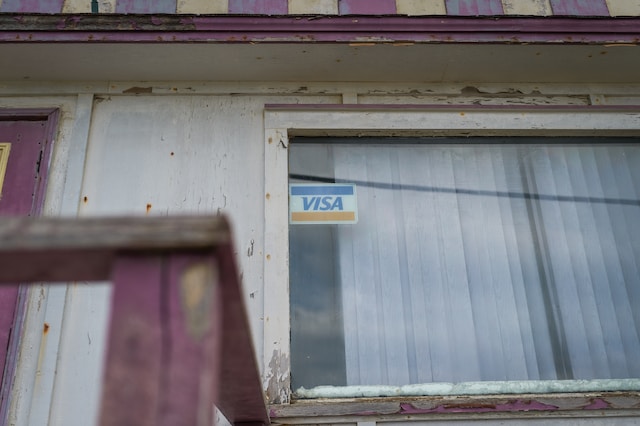
If you are a citizen of the United States, Canada, Australia, New Zealand, or Japan, you do not need a visa for stays of 90 days or less in most Schengen countries.
However, you will need to get a passport and have it stamped upon arrival. British citizens can also enter most Schengen countries without a visa for stays of 90 days or less. However, they too will need to get their passports stamped upon arrival.
Citizens of other countries will need to obtain a Schengen visa from the embassy or consulate of the country they plan to visit before they can travel.
Usually, this process involves filling out an application and providing supporting documentation such as proof of financial means and travel insurance.
Create a Realistic Budget for Your Trip
Assuming that you will be spending about $100 per day while in Europe, your total for a three-week trip would come to $2100. This doesn’t include the cost of your flight or any major sightseeing tickets prices like the Eiffel Tower or the Colosseum.

To make sure that you don’t overspend, it is important to create a budget before your trip. Determine how much money you will need for each day and try to stick to it as closely as possible.
withdraw cash from ATMs as you need it so that you are not carrying around large amounts of money with you.
If you are staying in hostels, remember to factor in the cost of bedding and towels if they are not provided by the hostel.
Many hostels also charge for the use of their kitchen facilities, so take this into account when budgeting for meals. The same goes for laundry – many hostels charge by the kilogram so it can be quite expensive if you have a lot of dirty laundry!
Book Flights and Accommodations in Advance
One of the best ways to save money on your European vacation is to book your flights and accommodations in advance.
This will allow you to take advantage of early bird discounts and also avoid the peak season surcharges that are often added on during the summer months.

Additionally, if you have specific dates or times in mind for your trip, booking in advance will give you the best chance of getting exactly what you want. To find the best deals on flights and accommodations, we recommend using a travel search engine like Kayak or Skyscanner.
Stay Flexible With Your Itinerary
While having some sort of plan for your European trip is certainly a good idea, it’s important to be flexible when creating your itinerary.
Booking flights and accommodations months in advance can give you the chance to save money, but if something better comes up — like last-minute discounts or other special offers — you should seize the opportunity.
To help make sure you don’t miss out on any great deals, use a travel planning website such as TripAdvisor or Expedia to search for available flight and hotel options in each of the cities you’d like to visit.
Visit Lesser-Known Destinations
Europe is home to some of the world’s most iconic cities — from London and Paris to Rome and Prague — but there are also plenty of lesser-known destinations that offer just as much beauty and culture at a fraction of the cost.
By doing your research beforehand, you can find hidden gems throughout Europe such as Slovenia’s beautiful Lake Bled, Germany’s gorgeous Black Forest region, and Denmark’s quaint fishing villages.
Visiting these underrated places will not only allow you to stretch your budget further but may
Get Travel Insurance for Peace of Mind (Recommended)
No one wants to think about what could go wrong on their dream vacation, but it’s important to be prepared for the worst. Travel insurance can give you peace of mind in knowing that you and your belongings are protected in case of an emergency.

There are many different types of travel insurance, so it’s important to find one that meets your needs.
For example, if you’re worried about getting sick or injured while abroad, look for a policy that covers medical expenses. If you’re worried about losing your luggage or having it stolen, look for a policy that covers lost or stolen belongings.
It’s also important to read the fine print of any travel insurance policy before purchasing it. Make sure you understand what is and is not covered by the policy.
For example, some policies will not cover pre-existing medical conditions, so if you have a health condition that requires treatment while on vacation, make sure your policy will cover it.
Travel insurance is an important part of preparing for any trip, but it’s especially important when traveling to Europe.
With its many different countries and cultures, Europe can be a challenging place to navigate if something goes wrong. But with travel insurance, you can rest assured knowing that help is just a phone call away if you need it.
Navigating Europe
When it comes to navigating your way around Europe, there are a few essential things you should keep in mind.
First, always carry a map with you (or download an offline map on your phone) as GPS can be unreliable in some parts of the continent.
Secondly, learn at least some basic phrases in the local language(s) wherever you’re going – it will go a long way in helping you get around. And finally, make use of public transportation whenever possible – it’s typically much cheaper and easier than renting a car.
Understanding Transportation Options (Trains, Cars, etc.)
Getting around Europe is relatively easy and efficient thanks to the well-developed transportation infrastructure.
The most popular option for long-distance travel is by train, as it is fast, comfortable, and offers stunning scenery along the way. For shorter journeys, cars or buses may be more convenient.
Before deciding on a particular mode of transport, you need to consider the distance to be covered, the time available, and the budget.
Train travel is generally more expensive than other options but can be worth it for longer distances. Cars can be rented in most European countries, although driving in unfamiliar territory can be challenging. Buses are usually the cheapest option but may not always be direct or reliable.

Knowing the basics of each transportation option will help make planning a trip to Europe much easier.
trains are ideal for longer journeys as they are fast and comfortable with scenic routes cars can be rented and offer convenience but challenging if driving in unfamiliar territory buses are cheaper but might not always have a direct route
Language Considerations and Communication Tips
No matter where you travel, it is always important to be respectful of the local culture and customs. This is especially true when traveling to a country whose primary language is not English.
To make the most of your trip and avoid any potential misunderstandings, there are a few language considerations and communication tips you should keep in mind.
First, it is important to try to learn at least some basic phrases in the local language before you go.
Even if you only know how to say hello, thank you, and please, this will show locals that you are making an effort to respect their culture.
Additionally, having even a basic understanding of the local language will make it much easier to communicate with people while you are there.
If you are unsure about how to pronounce something or what a particular word means, don’t be afraid to ask someone for help.
Most people will be more than happy to assist you, and this is often a good way to start a conversation. However, it is also important to be aware that some words or phrases may have different meanings in different cultures.
For example, in many European countries, the ‘thumbs up’ gesture has negative connotations, so it is best to avoid using it unless you are sure of its meaning in the particular country you are visiting.
Remember that body language can also be very important when communicating with people from other cultures. In some cases, what
Mobile Connectivity and SIM Cards
In today’s connected world, it’s important to stay connected while traveling. Whether you’re using your phone for navigation, keeping in touch with family or friends, or posting about your adventures on social media, you’ll want to make sure you have a good data plan in place.
If you’re traveling within the European Union (EU), there are a few different options for staying connected. First, you can use your home mobile service provider and roaming charges will apply.

Second, you can buy a prepaid SIM card once you arrive in Europe, giving you a local number and reduced rates. And third, many companies now offer international plans that work in multiple countries, including most of Europe.
When choosing an option for staying connected while traveling in Europe, be sure to consider your needs and usage habits.
If you’ll be relying heavily on data-hungry apps like maps and social media, then an international plan may be the best option. However, if you only need occasional access to email and the internet, then a prepaid SIM card could save you some money.
Accommodations and Dining
When traveling to Europe, it is essential to be aware of the different types of accommodation and dining options that are available. There are a variety of options to suit all budgets, so it is essential to research in advance and book accordingly.
There are many different types of accommodation available in Europe, from camping and hostels to luxury hotels.
Camping is a great option for those on a budget, as it is often cheaper than staying in a hotel. Hostels are also a popular option for budget travelers, as they offer basic accommodation at a reasonable price.
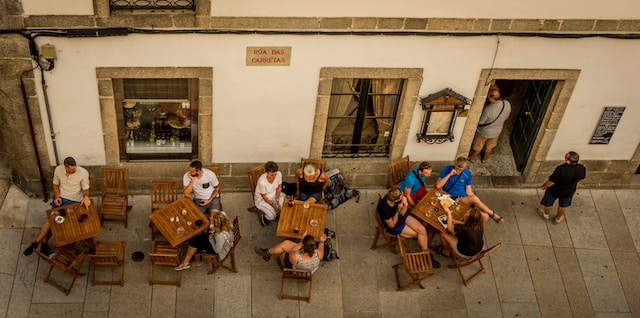
However, if you are looking for more comfort and luxury, then staying in a hotel may be the better option. Many different hotel chains are operating in Europe, so it is worth shopping around to find the best deal.
When it comes to dining out, there are also many options available in Europe. From Michelin-starred restaurants to street food vendors, there is something to suit all tastes and budgets.
If you are on a tight budget, then eating at cafes or fast food restaurants will be your best bet. For those with a bit more money to spend, there are plenty of fine dining options available.
When choosing a restaurant, it is always worth checking online reviews beforehand to ensure that you will enjoy the food and service on offer.
Choosing the Right Accommodation for Your Needs
When it comes to choosing accommodation in Europe, there are a few things you need to take into account. Depending on your budget and where you plan on traveling, you have a few different options. Here are some tips to help you choose the right accommodation for your needs:
Hostels: Hostels are a great option for backpackers or budget travelers. They are usually clean and safe and offer a variety of amenities such as kitchens and common areas. However, they can be noisy and you will be sharing a room with other people.
Hotels: Hotels are a good option for travelers who want their own space and don’t mind spending a bit more money. They offer more privacy than hostels, as well as better facilities such as en-suite bathrooms. However, they can be impersonal and less flexible with check-in/check-out times.
Airbnb: Airbnb is becoming increasingly popular in Europe, especially in larger cities. It offers the privacy of a hotel room with the bonus of having access to a kitchen and often living in a residential area (meaning less noise). However, it is important to read reviews carefully before booking an Airbnb, as there have been some instances of people being scammed.

The best accommodation option for you will depend on your individual needs and preferences. Take some time to research your options before booking anything so that you can find the perfect place for your trip!
Exploring Local Cuisine and Dining Recommendations
No matter where you travel, trying the local cuisine is a must. Not only is it a great way to get a taste of the culture, but it can also be a lot of fun. When it comes to European cuisine, there are so many options to choose from. From French fare to Italian classics, there’s something for everyone. To help you narrow down your options, here are some of the best local dishes to try in Europe:
In France, one of the most popular dishes is coq au vin. This savory chicken dish is cooked in red wine and is typically served with potatoes or rice. If you’re looking for something lighter, ratatouille is a fantastic option. This Provençal vegetable stew is perfect for vegetarians or those looking for a healthy meal.
Italy is well known for its delicious pasta dishes. One of the most popular types of pasta is spaghetti carbonara, which is made with pancetta, eggs, and Parmesan cheese. Another classic Italian dish is pizza, Margherita. This simple pizza features tomatoes, mozzarella cheese, and fresh basil leaves.

Spain is home to many different types of seafood paella. This traditional dish originated in Valencia and typically contains rice, seafood, vegetables, and saffron. If you’re not a fan of seafood, try migas de pan instead. This dish consists of breadcrumbs, garlic, peppers, and eggs – all fried together until golden brown.
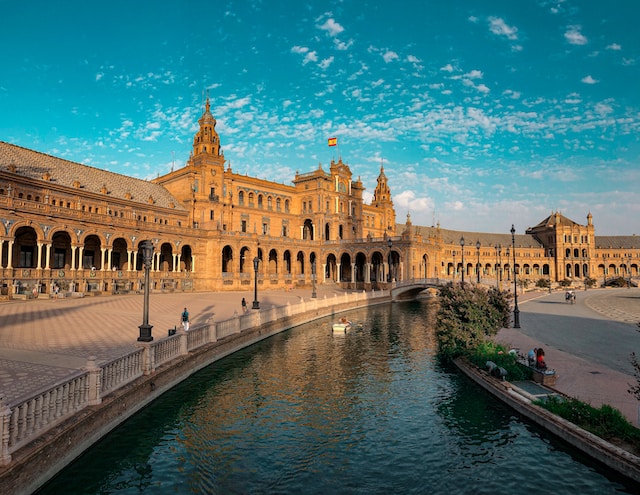
Getting Around the Cities
Many cities are large and spread out, so you’ll want to take advantage of the public transportation system. If you’re planning on doing a lot of walking, comfortable shoes are a must. Be sure to also pack a map of the city or download an offline map on your phone before you go exploring.
When using public transportation, be aware of your surroundings and keep your belongings close to you. There are pickpockets in many European cities, so it’s best to err on the side of caution. If you’re taking a taxi, only use licensed cabs and make sure the driver turns on the meter.
In general, European cities are very pedestrian-friendly and easy to navigate. With a little planning ahead, you’ll be getting around like a pro in no time!
Public Transportation Options and Tips
Assuming you’re starting your trip in a major city, there are a few different types of public transportation options available to get around Europe.
The first is the metro, which is an underground train system that runs throughout the city. It’s usually the quickest and most efficient way to get around, although it can be confusing if you don’t know your way around.
There are also trams, which are similar to trains but run on tracks above ground. They’re often slower than the metro but can be a great option if you want to see more of the city as you’re getting around. There are buses, which can be both reliable and affordable but may not always be the fastest option.
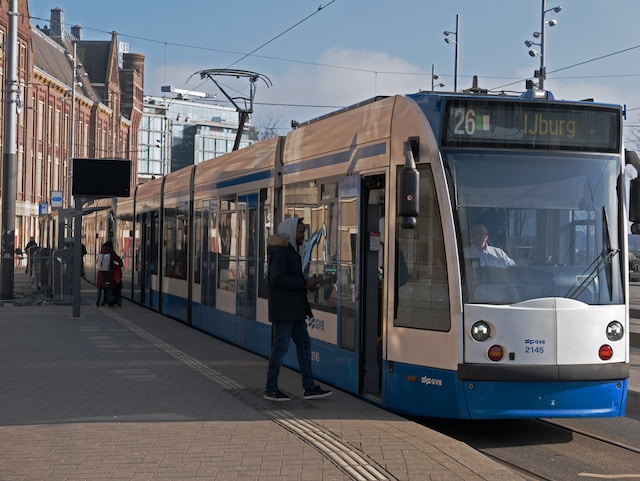
When it comes to tips for using public transportation in Europe, one of the most important things is to make sure you have a valid ticket before boarding. If you’re caught without a ticket, you’ll likely be fined.
Another tip is to familiarize yourself with the schedule and map of the transportation system before using it so that you know where you’re going and when the next train or bus will arrive. Try to avoid rush hour if possible as it can be very crowded and difficult to get around during peak times.
Walking Tours and Sightseeing Opportunities
Assuming you would like tips for walking tours and sightseeing opportunities in Europe:
There are endless walking tours and sightseeing opportunities available throughout Europe. Whether you want to explore the ruins of an ancient city, wander through picturesque medieval villages, or stroll through a modern metropolis, there is sure to be a tour that suits your interests.

Here are a few things to keep in mind when planning your trip:
-Do some research ahead of time to find a tour that covers the sights you want to see. There are many different types of tours available, from historical to architectural to cultural.
-If you are traveling on a tight budget, look for free walking tours. Many cities offer these, and they can be a great way to see the highlights of a place without spending any money.
-Walking tours can be strenuous, so make sure you are prepared for some long days of walking. Wear comfortable shoes and pack snacks and water to keep yourself fueled throughout the day.
Cultural Etiquette and Safety
When traveling to Europe, it is important to be respectful of the local culture and customs. Here are a few tips to help you avoid any cultural faux pas:
Do your research before you go. There is no substitute for learning about the customs and etiquette of a country before you visit. A little preparation will go a long way in helping you avoid any embarrassing situations.
Be respectful of religious customs. Europe is home to many different religions, so be sure to familiarize yourself with the basics of each before visiting any religious sites.

Watch your manners. Europeans tend to be more formal than Americans, so err on the side of caution when it comes to things like table manners, gift-giving, and public behavior.
Dress appropriately. In general, Europeans dress more formally than Americans, so leave casual clothes at home. When in doubt, it’s better to be overdressed than underdressed.
Be aware of your body language. Gestures that are common in the US can be considered rude in other cultures, so pay attention to how you are using your hands and feet when interacting with others.
Don’t forget your travel insurance! Europe has excellent medical care, but if you get sick or injured while traveling, you will be responsible for paying your medical bills. Make sure you have adequate travel insurance coverage before departure.
Behaving Appropriately and Respecting Local Customs
Planning a trip to Europe can be an exciting and enriching experience, but it’s important to remember that each destination has its unique customs and traditions.
To ensure a smooth and respectful journey across the continent, following some essential “Europe travel tips” is crucial.
One of the fundamental aspects of traveling is behaving appropriately in each local environment. Being respectful towards cultural differences will not only show consideration for locals but also enhance your overall travel experience.
Take time to research basic customs such as tipping etiquette or proper dress codes before stepping foot on foreign soil.
Furthermore, being mindful of social norms can help avoid any potential misunderstandings while making meaningful connections along the way. So unwind, immerse yourself in new cultures—and don’t forget your humble manners!
Staying Safe and Aware of Your Surroundings
Take some precautions to ensure you have a safe and enjoyable trip. Here are some tips:
-Research the local laws and customs of your destination before you travel. You don’t want to accidentally offend someone or break the law!
-Be aware of your belongings at all times, especially in busy areas like airports, train stations, and tourist hot spots. Pickpockets are known to operate in these areas so keep your valuables close to you.
-If you’re renting a car, make sure you know the local traffic laws and drive defensively. In some European countries, drivers yield to pedestrians so always look both ways before crossing the street!
-If you’re traveling by train or bus, be cautious of your personal belongings as these are also popular areas for thieves. Keep an eye on your bags and keep them close to you at all times.
Informing Others of Your Whereabouts
If you’re traveling to Europe, it’s important to let your family and friends know your whereabouts. There are a few different ways to do this, and the best method will depend on your situation.
If traveling with a mobile phone, you can use a service like Google Maps or Find My Friends to share your location with loved ones. This can be especially useful if you’re going to be in an unfamiliar place or visiting multiple countries.

If you don’t have a mobile phone, there are still options for staying in touch. Many hotels offer complimentary Wi-Fi, so you can check in with loved ones via email or social media. You can also use Skype or another VoIP service to make calls from your laptop or tablet.
If you’re traveling solo, it’s especially important to keep your loved ones up-to-date on your whereabouts. In addition to using one of the methods above, consider leaving a copy of your itinerary with someone at home. That way, if anything happens, they’ll know where to start looking for you.
Making the Most of Your European Experience
1. Do your research
Before you book your trip, it is important to do your research and figure out what kind of trip you want to have. Are you looking for a cultural experience? A relaxing vacation? Are you open to all types of destinations or do you have a specific city or region in mind? Once you know what type of experience you want, make sure to research the different destinations and attractions that are available to find the perfect place for your European adventure.
2. Learn at least some words in the language of the region you are visiting
When visiting any foreign country, learning at least a few basic words in their language can be very valuable when communicating with locals or trying to navigate around town.
Whether it’s how to say hello or goodbye, order food at a restaurant, or even ask for directions, knowing some phrases in the language can go a long way.
3. Try new foods
Trying new foods is one of the best ways to get immersed into any culture’s lifestyle—and Europe has so many amazing culinary options available!

Tips for Exploring Non-Euro Countries
There are a few things to keep in mind when exploring non-Euro countries in Europe. Here are some tips:
Not all countries use the Euro, so be sure to research the currency and exchange rates before you go.
Be prepared for language barriers. In many non-Euro countries, English is not widely spoken. It’s always a good idea to learn some basic phrases in the local language before you travel.
Non-Euro countries often have different types of accommodation than what you’re used to in Europe. Be sure to do your research so you know what to expect and can find the right accommodations for your needs.
Non-Euro countries often have different weather patterns than what you’re used to in Europe. Be sure to pack accordingly so you’re prepared for any weather conditions.
Plan your itinerary carefully: Non-Euro countries often have different types of attractions and activities than what you’re used to in Europe. Be sure to do your research so you can plan an itinerary that includes the best of what the country has to offer
Must-Visit European Cities and Attractions
To help you narrow down your options, here are some of the most popular and beloved European cities and attractions that are worth a visit:
1. Paris, France – Of course, no trip to Europe would be complete without a stop in the City of Love. From iconic landmarks like the Eiffel Tower and Notre Dame Cathedral to world-renowned art museums and fashionable neighborhoods, there is something for everyone in Paris.
2. Barcelona, Spain – Another must-visit city is Barcelona. This vibrant Spanish metropolis is home to stunning architecture by Antoni Gaudí, lively nightlife, beautiful beaches, and much more.
3. Venice, Italy – Venice is a one-of-a-kind destination with its labyrinth of canals and bridges connecting picturesque neighborhoods. Take a ride on a gondola, enjoy some authentic Italian cuisine, and explore the many art galleries and churches located throughout this unique city.
4. Vienna, Austria – Vienna is known for its musical history and culture, as well as its regal palaces and stately gardens. Be sure to check out some of the Vienna Philharmonic’s world-famous concerts or take a tour of the Hofburg Palace while you’re in town.
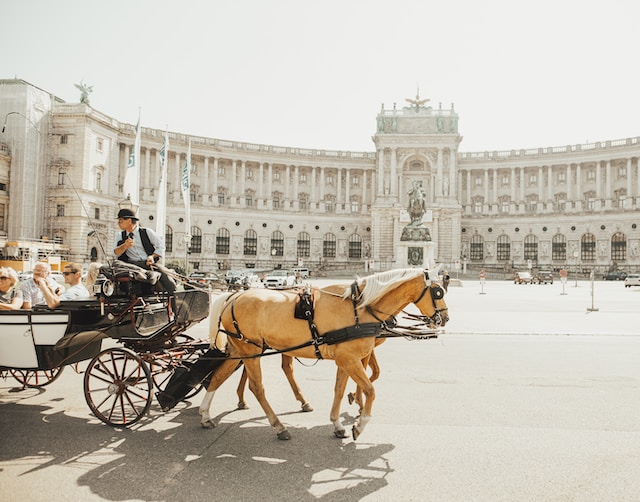
5. Amsterdam, Netherlands – Last but not least is Amsterdam, a city filled with history, art, and culture. Spend some time wandering through the colorful streets of Amsterdam or take a day trip to Anne Frank House for a poignant reminder of the difficult past.
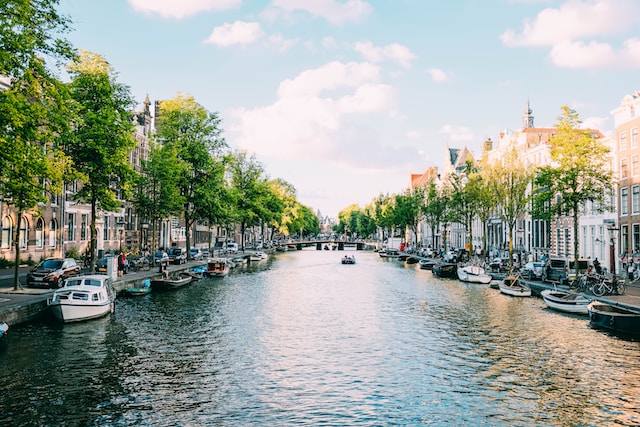
These are just some of Europe’s most popular destinations that you won’t want to miss! Wherever you choose to go on your European vacation, make sure to explore and have fun!
Skiing and Winter Sports Destinations in Europe
With its varied terrain and a long list of world-class ski resorts, Europe is a top destination for winter sports enthusiasts. Whether you’re looking to hit the slopes in Austria, Switzerland, France, or Italy, there are plenty of great places to choose from.

Some of the most popular ski resorts in Europe include Kitzbühel in Austria, Zermatt in Switzerland, Courchevel in France, and Cortina d’Ampezzo in Italy. These resorts offer a variety of different activities for visitors to enjoy, from skiing and snowboarding to apres-ski dining and nightlife.
Money Matters and Shopping
One of the first things you’ll want to do when planning a trip to Europe is to figure out your budget. How much money will you need for transportation, lodging, food, and activities? Once you know your budget, you can start looking into the best ways to save money on your trip.
There are a few things to keep in mind when it comes to spending money in Europe. First, always carry some cash with you.
Credit cards are widely accepted in Europe, but there are still some places where cash is the only option.

Second, be aware of pickpockets. Keep your valuables close to you at all times and don’t flash them around in public. Don’t forget to tip! In Europe, it’s customary to leave a small tip (5-10%) for good service in restaurants and hotels.
Now that you’ve got your budget sorted out, it’s time to start shopping! Europe is home to some of the world’s best fashion designers and luxury retailers.
If you’re looking to splurge on a new wardrobe, Paris is the place to go. For more affordable shopping options, try London or Berlin.
And if you’re searching for unique souvenirs or gifts, head to one of Europe’s many markets or small shops. No matter what you’re looking for, you’ll be able to find it in Europe!
Currency Tips and Exchanging Money
-The euro is the official currency of 19 of the 28 European Union countries. This includes Austria, Belgium, Cyprus, Estonia, Finland, France, Germany, Greece, Ireland, Italy, Latvia, Lithuania, Luxembourg, Malta, the Netherlands, Portugal, Slovakia, Slovenia, and Spain.
There are also a few non-EU countries that use the euro as their currency including Kosovo and Montenegro. Andorra, Monaco, and San Marino all use local currencies which are pegged to the euro.
– ATMs are widely available throughout Europe and are usually the best way to get cash. Be sure to inform your bank of your upcoming travel so they don’t flag your account and disable your card.
– When using an ATM overseas you will typically be charged a fee by both your home bank as well as the bank that owns the machine you’re using. These fees can add up so it’s best to withdraw larger amounts of cash less often.
– Credit cards are also widely accepted in Europe although you may be charged foreign transaction fees by your credit card company. Again, it’s best to inform them of your upcoming travel plans in advance.
– If you need to exchange cash while in Europe most airports have currency exchange offices as do many large hotels. You’ll get better rates at banks
Managing Your Finances and Keeping Cash Secure
When it comes to your finances, there are a few key things to keep in mind when traveling to Europe. First and foremost, make sure you have a secure place to keep your cash.
Whether that means carrying a travel money belt or keeping your money in a hidden pocket, pick a spot that will be difficult for pickpockets to access.
However, be aware of the fees associated with using an international ATM – these can add up quickly! If possible, withdraw larger amounts of cash at once to avoid paying multiple fees.
Remember to budget for all of your expenses while in Europe. Between accommodation, food, transportation, and activities, it’s easy to overspend when you’re on vacation.
By managing your finances ahead of time, you can ensure that you’ll have enough money for everything you want to do without breaking the bank.
Bargain Shopping and Souvenir Recommendations
If you’re looking to do some bargain shopping while in Europe, head to the local marketplaces! You’ll find fresh produce, unique handmade goods, and so much more. For souvenirs, we recommend picking up a few local items like hand-painted pottery or jewelry.

If you’re looking for more high-quality souvenirs, consider browsing the flea markets. Here, you’ll find antiques and other items that are sure to be a great reminder of your trip. You should also look out for unique local artwork, as these pieces can often be found for a great price and make wonderful mementos.
Travel Books and Resources for Destination Research
Whether you’re planning a trip to Europe or just dreaming about one, there are tons of great travel books and resources out there to help with your destination research. Here are a few of our favorites:

1. The Lonely Planet Guide to Europe – This comprehensive guidebook covers all the basics of European travel, from choosing a destination and booking transportation to finding accommodation and navigating your way around. It’s perfect for first-time visitors or anyone looking for an overview of the continent.
2. Rick Steves’ Europe Through the Back Door – If you’re interested in learning more about the local culture and getting off the beaten path, this is the book for you. Rick Steves takes readers on a tour of Europe’s less-traveled corners, sharing his insider tips on everything from where to find the best food and wine to how to make new friends along the way.
3. National Geographic Traveler: Europe – This beautifully illustrated guidebook is packed with information on all aspects of European travel, from history and culture to food and wine. It’s a great resource for armchair travelers or anyone looking for inspiration for their next trip.
4. Fodor’s Essential Europe – Another excellent option for first-time visitors or anyone wanting an overview of European travel, this guidebook covers all the major destinations as well as lesser-known gems. You’ll find practical advice on everything from transportation and accommodation to dining and nightlife.
International Driver’s License and Rental Car Tips
You need to know a few things in advance if you plan to rent a car and drive in Europe. First, get an International Driver’s License from the AAA, which you can get for free. Before you begin driving, it is a good idea to get acquainted with the local traffic laws and purchase insurance for your rental car.
Getting the best deal on a rental car means booking in advance. Read the fine print of your rental agreement carefully to understand any restrictions or extra charges that may apply.
Contacting Credit Card Companies and Informing Them of Travel Plans
Safety and Security
Here are a few tips to help you stay safe and secure in Europe, no matter if you’re traveling for the first time or the hundredth time.
• Be aware of your surroundings and trust your instincts. If something doesn’t feel right, move away from the situation.
• Stay in well-lit and busy areas. Avoid walking alone at night.

• Keep your valuables close to you and don’t flash them around. This includes money, jewelry, laptops, etc.
• Be cautious of pickpockets. They are especially active in crowded areas like markets, tourist attractions, and public transportation.
• Never leave your food or drink unattended. This could be an opportunity for someone to slip something into your drink or food.
• Keep an eye on your belongings when using public transportation or when they’re out of your sight (in a restaurant, for example).
Staying Informed About Local Laws and Emergency Procedures
Every country has its own unique set of rules and regulations, and it’s important to be aware of them before you travel.
In addition, it’s a good idea to research emergency procedures in case of an unexpected event while you’re abroad. Knowing what to do in an emergency can help you stay safe and calm in a potentially chaotic situation.
Here are some tips for staying informed about local laws and emergency procedures before you travel to Europe:
Before you travel, take some time to research the local laws and emergency procedures in the countries you’ll be visiting. You can find this information online or through your local consulate or embassy.
Familiarize yourself with basic European laws and customs, such as speed limits, drinking age restrictions, and passport requirements. This will help you avoid potential problems while you’re traveling.
Stay up-to-date: Be sure to stay up-to-date on any changes to local laws or emergency procedures before your trip. You can sign up for email or text alerts from your consulate or embassy, or follow news sources for updates on current events in Europe.
Registering with the Appropriate Authorities if Required
One of the most important things to do before your trip is to make sure you’re registered with the appropriate authorities if required.
Depending on your country of origin and your travel itinerary, you may need to get a visa or other travel documents before you can enter Europe.
You can check with your local embassy or consulate for more information on what documents you’ll need for your trip. Even if you don’t need a visa, you may still need to register with the authorities in some countries.
For example, if you’re going to be staying in Germany for more than 90 days, you’ll need to register with the local police department within 14 days of arrival. Make sure you research the registration requirements for each country you plan to visit so that you don’t run into any problems during your trip.
Conclusion
Europe is a great destination to experience, and we’ve provided you with some essential tips for europe travel for your next trip.
From making sure you have the right documents when traveling from one country to another, to finding the best deals on food and accommodation when abroad, our travel tips will help make your journey smoother and more enjoyable.
Whether it’s soaking up culture in Italy or taking in spectacular views in Scotland, get ready for an unforgettable vacation by getting clued up on all of these top European travel tips before you set off!
When it comes to planning an unforgettable European getaway, proper preparation is key. Even if you’ve traveled this continent before, there will always be something new to discover and explore.
From making sure you pack the right items for your trip, to being aware of all the necessary documents and visas you might need, no detail should be overlooked. Researching transport options ahead of time will help make getting around easier, and understanding travel safety tips in Europe is always a priority too.
Encouragement to Embrace the Unique Experiences Europe Has to Offer
Europe is a continent full of unique experiences and cultures. From the stunning architecture and arts to the rich history and delicious food, there is something for everyone to enjoy. Here are a few tips to help you make the most of your trip:
While there are many amazing things to see and do in Europe, it can be helpful to have an idea of what you want to experience before you arrive. This way, you can make the most of your time (and budget!)
One of the best parts about traveling is getting to know new people and cultures. Be open-minded and take advantage of opportunities to learn about the customs and traditions of your destination.
Don’t forget to pack essentials like comfortable shoes, a jacket (it can get chilly!), and your camera – you’ll want to document all of your adventures!
Be prepared for some language barriers. While many people in Europe speak English, there will still be times when you need to communicate with someone who doesn’t. Brush up on key phrases before you go, or carry a pocket dictionary with you so you can look up words as needed.
Have realistic expectations. Remember that travel is not always glamorous – sometimes it’s hot, crowded, and stressful. But if you keep an open mind and go with the flow, you






